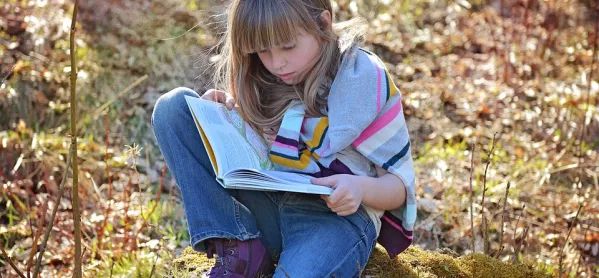- Home
- Why teaching classic literature too early is a ‘recipe for ruining great books’ for children
Why teaching classic literature too early is a ‘recipe for ruining great books’ for children

Recipe for ruining great books:
Step one: Take a bona fide classic, fresh or preserved.
Step two: Hack out palatable chunks (never use the whole book).
Step three: Add a liberal sprinkle of received interpretation.
Step four: Supplement the text with a movie version.
You are now ready to force-feed this to children who are not old enough to digest such a diet - this is incredibly important to the ruining of great books. You will need to ensure that children endure sitting after sitting of the above. Of course, they should add tasting notes to their texts, but be careful to make sure they never have original thoughts about what they are consuming.
If you follow these very simple steps, you can be sure that the majority of children will be put off reading good literature for a significant portion of their lives.
‘Adulthood is the right time for reading classics’
This is a cynical view, but it reflects my own school experience and, I suspect, the experience of many others. I was “taught” Jane Eyre but all I did was watch a film (I only really remember the mad wife jumping out of the burning building) and I was never asked to read the whole book. At age 14, I was not ready for the Brontës - and I don’t think I should have been.
Some adults feel disappointed with their younger selves for not having read certain classics earlier. But adulthood is the right time to read these books. I am glad that I was not force-fed any other age-inappropriate literature when I was a teenager. Recently, I’ve begun to read a few classics under my own steam, but I certainly haven’t felt compelled to revisit Jane Eyre (although I did enjoy the more recent film). I wouldn’t have been in the right place as a younger person to appreciate certain books which I now love. In fact, I might have ended up hating them, thus spoiling them for my older self.
And it’s not just teenagers we do this to. Maybe I’m just an old fuddy-duddy but Harry Potter books should be read by children of a similar age to Harry Potter (give or take a year or so depending on maturity levels). The first book can be read by a younger child than should read the later books; the books get “darker” and the themes mature as Harry grows up. Why do we need, or want, our younger children to read Harry Potter when there are plenty of other books out there on the same themes that are age-appropriate? Give children books written for more mature readers and you deprive them of a more enjoyable reading experience later in life at a time where they can comprehend the texts more fully.
‘Disallowed a love of reading’
Now, I’m not one to shy away from challenge - it’s the premise of all I do and the key to all of the success I see in classrooms - but we need to be careful how we challenge children’s reading skills. You want to expose them to more archaic vocabulary and sentence construction in the primary classroom without resorting to age-inappropriate texts? 1908 was a good year, for example: The Wind in the Willows, Anne of Green Gables, Dorothy and the Wizard in Oz, a couple of Beatrix Potters.
Shakespeare? Fine for children who want it, but not for general consumption, at least not in its original form. Teaching texts from the secondary curriculum at primary is not the key to ensuring better understanding of them once students get to secondary level. Primary teachers have a far greater role to play in developing a love of reading. Sometimes, although I personally dislike it, that comes in the form of endless Diary of a Wimpy Kid books. But sometimes it comes from brilliant picture books, other times from reading recently written novels in private or reading children’s classics aloud in class. It can even be the much-maligned non-fiction books.
If primary teachers begin teaching age-inappropriate texts so that children are “ready” for them in secondary, what secondary teachers will receive are children who are not at all ready, children who are switched off from reading (and will be until, like me, they make a conscious decision as an adult to become a reader again). That’s not something we should be willing to encourage.
Children should not be disallowed a love of reading. They should have the same rights as an adult reader, and that includes choice and books that are appropriate for them. There is more to reading than teaching texts from a syllabus, and teachers would do well to remember that. Primary teachers have the luxury of being able to choose books for their children and they should continue to do this, not bound by the set texts that children may encounter in secondary schools. Of course, they should always, always be seeking to challenge children, but not by providing texts that are inappropriate to the maturity levels of the children in their care.
Aidan Severs is an assistant vice-principal at a primary school in the North of England. He blogs at ThatBoyCanTeach and tweets @thatboycanteach
Want to keep up with the latest education news and opinion? Follow Tes on Twitter and like Tes on Facebook
Keep reading for just £1 per month
You've reached your limit of free articles this month. Subscribe for £1 per month for three months and get:
- Unlimited access to all Tes magazine content
- Exclusive subscriber-only stories
- Award-winning email newsletters



